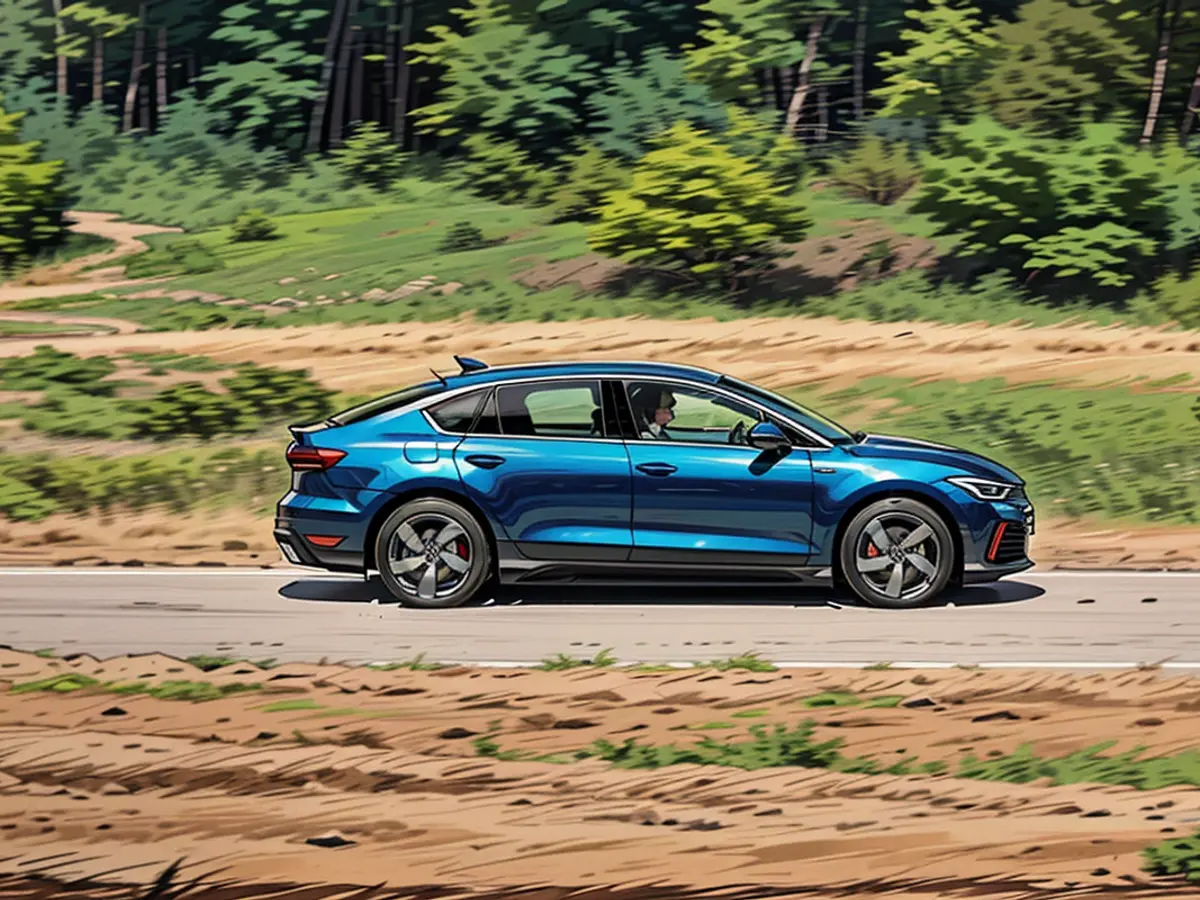Amidst a state of turmoil.
It appears that the era of prosperity in the German automotive sector seems to be waning. Instead, there's a mounting pile of unfavorable news from automakers and suppliers. Is this key industry dealing with a location crisis, or potentially an existential one?
As per media reports, the German automotive sector is grappling with a crisis: short-term work arrangements here, layoffs there. Production levels are being scaled back. Insolvencies. Nearly all manufacturers and suppliers are experiencing the brunt of these challenges. Even the head of the automotive association (VDA), Hildegard Müller, has referred to this as a "location crisis" and impending "deindustrialization." An influential voice representing over 620 manufacturers and suppliers.
The question arises: Is the German automotive industry truly in crisis?
Two points to bear in mind first
To weigh in economically and thoughtfully, two factors necessitate clarification initially: What are we referring to? Who qualifies as part of the automotive industry? What are the factors driving this critical industry, known for record profits in previous years, to suddenly appear to be in "crisis" in public perception?
Regarding the first point: The automotive sector doesn't exist as a single entity. It comprises six independent German car manufacturers and three foreign car companies with production facilities in Germany. Add to that, a substantial number of globally renowned suppliers, each focusing on distinct business areas. This also includes numerous small and medium-sized suppliers scattered across the country.
Regarding the second point: Since early 2020, the economy and society in this country have faced a succession of grim news: coronavirus pandemic, Russia's war in Ukraine, energy crisis, inflation, skyrocketing prices, chip shortage, supply chain issues, and so forth. Despite these challenges, the sector did not collapse, but produced fewer, although more costly, cars.
Additional factors to consider
Besides these external pressures, the automotive sector encountered significant political hurdles. In line with green environmental, economic, and climate policies, the German automotive sector was mandated to phase out internal combustion engine technology, its primary source of revenue for around 100 years. In lieu of this, it was now: Exclusively electric mobility based on battery-electric vehicles (BEVs). This transformation was backed by substantial state investments in charging infrastructure and customer purchase incentives. Meanwhile, CO2 penalties for new car combustion fleets of car manufacturers were imminent. A EU ban on new combustion engines from 2035 rounded up the package of punitive measures.
The automotive sector did not oppose this dismantling of its combustion engine know-how - on the contrary: The industry invested heavily in the new technology, with manufacturers voluntarily taking the lead, and suppliers following suit, more or less under duress.
The repercussions were severe: Due to resource constraints, the government retreated from funding, as did new electric car buyers post the pioneer consumers satisfying their image-driven, price-conscious fancies. Furthermore, electric car users faced increasing financial losses, with depreciating residual values or surging insurance premiums. Inventory levels at dealerships climbed. These issues began to infiltrate public consciousness.
Not the overall automotive market, but only the electric vehicle market faltered, with Tesla, the lone "Solo-Stromer," losing over half its market share in just a few months, despite hefty discounts. On the contrary, automotive demand enjoyed a resurgence, with orders skyrocketing, as per the VDA, notably in the summer of 2024. According to official registration statistics, vehicles with dual-drive technology, such as hybrids (HEV) and rechargeable plug-in hybrids (PHEV), were overwhelmingly preferred.
A Scheming German Automobile Market
Consequently, the question of an industry crisis is answered: There is no widespread crisis in the German automotive sector, only a short-term concentration of losses among the members of the industry involved in the battery electric vehicle market.
The German automobile market, having a significant impact on a market economy centered around the "King Customer," remains robust: While new registrations are still about 20% below pre-Corona levels annually, they remain consistent at around 2.6 to 2.9 million cars per year. Instead of BEVs, conventional cars and increasingly hybrid cars are being purchased.
The so-called industry crisis reveals itself to be a "profitability and sales crisis" for certain automakers. This affects those, like VW, who had previously shifted their focus towards battery electric mobility in substantial strides; the company had targeted selling only electric cars by the beginning of the subsequent decade and had renovated entire plants (Zwickau and Emden) for BEV production, with a new E-car plant even planned for Wolfsburg. Forgotten!
The weakest links in the value chain - small and medium-sized suppliers - are particularly affected. They have little say in manufacturers' demand and are left with few compensation options in the combustion engine business. Bankruptcies loom nearby. This has blatantly adversely affected their balance sheets.
In brief, there is no general crisis in the German automotive sector, only a historically unique blend of misjudgments. A drastic reduction in capacities would be equally detrimental as the unwavering march into BEV mobility once was.
The Commission, being part of the German government, has played a role in the automotive sector's transformation, mandating the phase-out of internal combustion engine technology and promoting electric mobility. However, the hasty transition and subsequent withdrawal of government funding have led to financial losses and inventory issues in the electric vehicle market, affecting some automakers and suppliers significantly.
Despite these challenges, The Commission's efforts to transition the automotive sector towards a greener future are not entirely misguided. The German automobile market as a whole remains robust, with demand for conventional cars and hybrids driving new registrations, albeit still below pre-pandemic levels.








